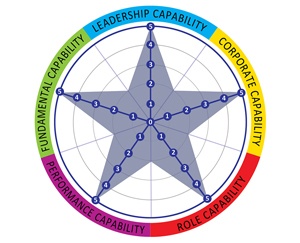Why The Complete Capability Set Is Vital
Traditional schools are, more and more, being required to operate like independent businesses. However, they have seldom been prepared for this and are rarely adequately supported in this new way of working.
And, just as retailers have had to adjust to online shopping offerings, so do traditional schools have to adjust to online education offerings, especially given the COVID-19 pandemic. There are a plethora of online education offerings, pure and blended, run by business people, with serious investment capital behind them and very aggressive marketing strategies. In addition, access to WWW and social media has changed the psyche of children, and parents demand "bang for their buck" when it comes to the education of their kids.
As such, traditional schools need to review their business model, and their educators and support staff must now acquire the full range of capabilities to ensure that their schools prosper.
Currently, teachers are educated in their chosen subject matter and taught to teach it. They are appointed on their ability to perform their teaching role well, that is, on their role-specific capability. Some are promoted to become heads of department and then heads of schools.
As heads of schools, principals are required to manage a range of staff, functions, and service providers similar to that of any commercial or public enterprise. In fact, for the period of their tenure, principals (like the leadership of any organization) are required to be the custodians of their school's health and performance. This is a complex, multi-dimensional role that requires a systematic, holistic approach as described in a previous article, "Leaders: Listen To The Digital Heartbeat Of Your Organization." However, as much as heads of schools are going to require a more holistic and inclusive approach to leading their schools into the future, they are also going to need to rely on all of their staff for support, and this requires all staff to have the complete capability set.
So, what is the complete capability set? And, why is this so important?
In today's competitive environment, it is no longer enough to employ people who are competent in the role-specific capabilities required to do their job, for example, to teach a subject or a range of subjects. If schools/organizations are going survive and prosper, all staff must be suitably proficient in all of the 5 capability sets required to deliver stellar performance not only in their own role but also to contribute to the performance of the school/organization as a whole. These 5 capability sets are shown diagrammatically below:

How you express yourself through your capabilities defines how people feel about being around you and working with you. How people feel about you is how they remember you. If their feelings are positive about you, they are more attracted to being with you, working with you, and seeing you as a good role model. The converse is also true.
The 5 Capability Sets
1. Leadership Capabilities
Leadership capabilities are those capabilities that enable one to lead others, to be led, and to lead oneself (this involves having a clear purpose and a strong moral compass).
These capabilities are evident when you can demonstrate that you have a clear sense of personal purpose and you are clear about your role and your team’s role as well as the contribution that you make, individually and collectively, to the school/organization’s purpose. Importantly, you exhibit a sense of congruence between your personal purpose and that of the school/organization. You would also be able to list the principles/ethics that your team has identified as being key to you as a group, as well as the behavioral anchors that exemplify such in behavioral terms. Further, you will be able to demonstrate that you are confident to challenge those around you when they do not uphold these principles/ethics.
Importantly, colleagues would express that they feel that you display "a sense of integrity and transparency.”
2. Corporate Capabilities
Corporate capabilities are the capabilities that enable one to function comfortably in a structured school/organization environment, which has processes, rules, regulations, and governance.
Schools/organizations are “open-ended communities of people, formally assembled for a specific purpose.” By definition, all schools/organizations then have a corporate nature (derived from Latin to “form a body”), that is, “shared responsibility of members of the group.” Critical to the success of any school/organization is that members are good corporate citizens and that they understand, respect, and contribute to the institutional integrity that they are part of, both structurally and process-wise.
These capabilities are evident when you can demonstrate knowledge of relevant regulations and industry/professional/technical standards (for example, health and safety) and that you have systems in place to ensure that you meet these standards so that the school/organization is not compromised or put at risk. You will feel empowered working within the structure and are able to constructively challenge a process that does not resonate.
Colleagues would express that they "trust" that you will comply with the ways of working and will support the integration of collective effort and compliance with agreed principles and regulations.
3. Role Capabilities
Role capabilities are those that enable one to perform role-specific professional functions (for example, teaching or accounting functions), technical functions (for example, maintenance functions), support functions (for example, administration functions) as well as, if required, management tasks (for example, performance management).
This is evident when you can demonstrate the necessary professional, technical, or administrative capabilities as well as, if required, the managerial/supervisory knowledge and skills relevant to your job. This is all about understanding, developing, and applying your relevant role-related capabilities. In this area, you would also be able to demonstrate your commitment to ongoing CPD (continuing professional development), or in the case of teachers, CPTD.
In this regard, colleagues would express that you are knowledgeable and credible in your role and they feel "confident" that you have the relevant know-how to get the job done.
4. Performance Capabilities
Performance capabilities are those that enable one to take appropriate action as required by the situation (for example, setting objectives, planning, problem-solving, and decision-making).
These are evident when you are able to demonstrate the level of performance capabilities relevant to your role. They are the action capabilities that show you are proactive, can solve problems, make the right decisions timeously, and can plan and organize your work so that you meet deadlines and achieve objectives/goals timeously. This is all about understanding, developing, and applying the relevant performance capabilities.
In this regard, your colleagues would express a "sense of optimism" that you will mostly achieve what you commit to.
5. Fundamental Capabilities
Fundamental capabilities are the emotional and prosocial (communication and relational) capabilities that enable one to function as a competent, decent human being to be with and work with.
This is demonstrated when you show that you build sound relationships with those you work with, communicate with them appropriately and effectively, and are a healthy, well-balanced (emotionally, mentally, and physically) person to be around.
People that work with you, express that you are "a great person to be around and have a positive effect on them."
Leveraging The Complete Capability Set To Prosper
The 5 capability sets above all play a role in enabling each employee to make their contribution fully count toward their schools/organizations prospering.
The good news is that each of these capability sets can be self-assessed and then compared to the 360-degree feedback received from colleagues. Opportunities for development can be identified and tangible, constructive interventions planned to address areas of opportunity. And, all of this can be easily done using Learning Management System technology. Importantly, these developmental activities can contribute to CPTD points.
The model also provides a context for understanding the role or value-add of any specific training or development intervention.
Using The 5 Capability Set Model To Provide Context For Any Training And Development Initiative
It has long been understood that we need more than just role-specific capabilities to be effective and many great thought leaders have applied their minds to add value in this regard. Let's use our model to provide context for two very well known examples in this regard.
In 1989, Stephen Covey published "The 7 Habits of Highly Effective People." This has sold over 25 million copies in 40 languages. Corporations purchased the training program from the Covey Institute and had internal trainers trained to train their employees, or they engaged the Covey Institute directly or indirectly to do so. This is recognition of the fact that having strong role-specific capabilities is not enough to be able to excel at one's job. The "7 Habits of Highly Effective People" was seen as a capability catalyst to leverage the performance of people who already had good role capability.
But how does this fit into the context of our 5 capability set model? Simple really. Covey's first 3 habits of "be proactive"; "begin with the end in mind"; and "first things first," together with his 7th habit of "sharpen the saw" are clearly aimed at developing habits that enhance the Performance Capability Set. His second 3 habits of "win-win"; "seek first to understand"; and "synergize" are aimed at developing habits that enhance the Fundamental Capability Set. The understanding of the context enables us to better understand and apply new learning.
In 1990, Salovey and Mayer coined the concept of "emotional intelligence." Again, this was seen as a quality to be recognized, nurtured, and developed to improve the performance of people who already displayed good levels of role capability. Courses to develop this capacity clearly aim to enhance aspects of one's Fundamental Capability set.
Subsequently, there have been many new insights, by many brilliant thought leaders, offered to leverage the performance of people who have been selected for their role-specific capabilities to do a specific job. Using self-assessment and 360-degree evaluations enables us to pinpoint which capability sets we have the opportunity to improve and then to more specifically choose the courses/interventions that will enhance the areas of the capability sets that show opportunity for improvement for a specific person.
Call-To-Action
Take a measured approach to help all staff to fully assess and understand the capabilities they need to contribute fully to their own performance and the ongoing health and performance of their school/organization. And then, help them to acquire the complete capability sets that they need for stellar performance in their jobs and for the school/organization.

